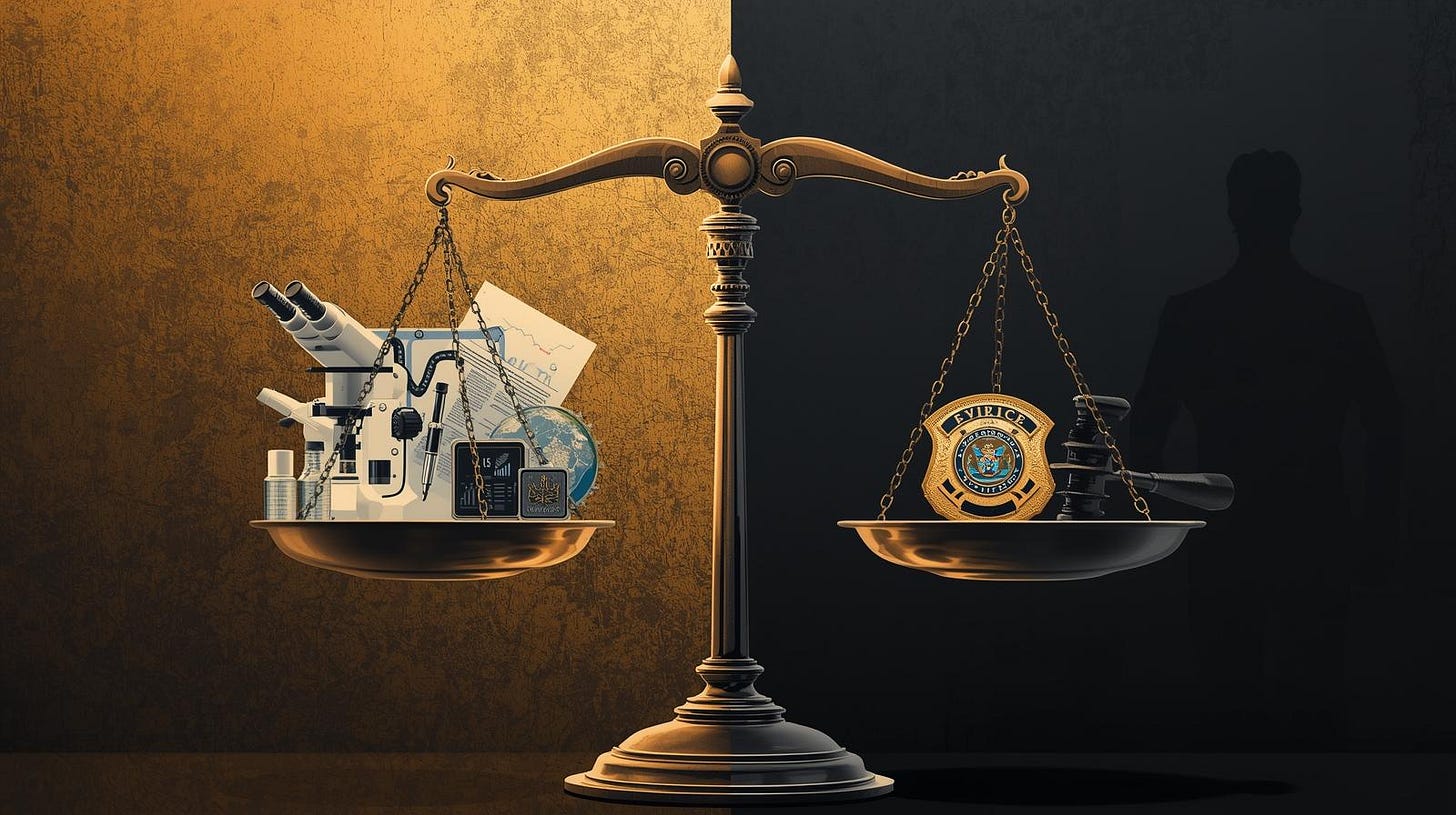Truth, Power, and the Crisis of Forensic Independence
Why laboratories expel truth-tellers instead of confronting error.
My latest editorial, Truth, Power, and the Crisis of Forensic Independence, has just been published in Forensic Science International: Synergy. The article examines the structural forces that shape how forensic evidence is interpreted, presented, and, at times, suppressed.
I focus on the sociological, anthropological, and historical patterns that explain why institutions repeatedly expel those who threaten their authority.
The Core Problem
Forensic laboratories claim scientific independence while operating under the administrative and financial control of law enforcement hierarchies. This fundamental structural conflict undermines the credibility of forensic science itself.
When scientists challenge prosecutorial narratives or expose systemic problems, they frequently face professional retaliation, forced resignations, or career marginalization. The editorial argues these aren’t isolated incidents but symptoms of a deeper governance failure.
Historical Parallels
The piece draws parallels between ancient mechanisms of enforcing orthodoxy and modern institutional responses to dissent. I draw on historical parallels of dissenters who resisted the pull of power to modern-day examples of lab whistleblowers.
The mechanisms of punishment have changed throughout history, but the purpose remains the same: to preserve institutional legitimacy by marginalizing the dissenter.
Documented Cases of Retaliation
The editorial examines several cases:
Gregory Ohlson (Arizona DPS): Forced into early retirement after testifying that laboratories should disclose full batch data, despite federal acknowledgment that his speech was constitutionally protected.
Darcy Richardson (Vermont): Reported that technicians were artificially spiking control samples. Her warnings were ignored, and courts later dismissed cases on the very grounds she had identified.
Bethany Pridgen (Wilmington Crime Lab): After testifying about missing drug evidence and laboratory mismanagement, authorities transferred the entire lab out of city control to eliminate her position.
Itiel Dror (Cognitive Psychologist): His methodologically sound research on cognitive bias in forensic pathology provoked intense backlash; not because his research was flawed, but because its implications were uncomfortable.
The Scapegoat Mechanism
These cases reveal how institutions protect their authority not by confronting error, but by expelling those who reveal it.
Drawing on René Girard’s theory of scapegoating, I analyze how communities preserve unity by expelling the individual who exposes the internal contradictions of their shared myths.
In forensic science, the myth is that state laboratories are impartial guardians of truth. When someone undermines that belief, the institution responds with expulsion rather than reflection.
The Path Forward
More than fifteen years after the National Academy of Sciences warned that forensic laboratories cannot claim objectivity while operating under law enforcement control, the institutional framework remains largely unchanged.
We need change. I’m calling for:
Genuine scientific independence: Forensic laboratories governed by scientists, not law enforcement hierarchies.
Mandatory full disclosure: Complete transparency in methods, data, and results available in online discovery portals.
External peer review: Independent oversight from external experts outside of the system.
Whistleblower protections: Protected avenues for challenging entrenched narratives without fear of reprisal.
Science must remain self-correcting and free from the gravitational pull of power.
When science can question authority without penalty, it fulfills its role as an instrument of truth. The integrity of forensic practice depends upon preserving that freedom.
Building on Previous Work
This piece extends the analysis Chuck Ramsay and I began in Errors in Toxicology Testing and the Need for Full Discovery, which documented systematic problems including calibration failures, discovery violations, and whistleblower retaliation.
Read the Full Article
The editorial is published as open access:
“Truth, Power, and the Crisis of Forensic Independence”
Forensic Science International: Synergy 11 (2025) 100647
https://www.sciencedirect.com/science/article/pii/S2589871X25000762


